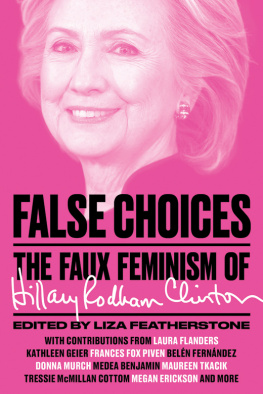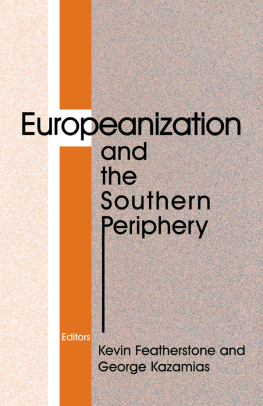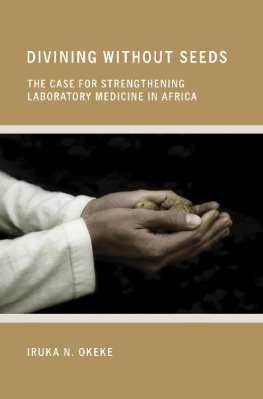Liza Featherstone - Divining Desire: Focus Groups and the Culture of Consultation
Here you can read online Liza Featherstone - Divining Desire: Focus Groups and the Culture of Consultation full text of the book (entire story) in english for free. Download pdf and epub, get meaning, cover and reviews about this ebook. year: 2018, publisher: OR Books, genre: Politics. Description of the work, (preface) as well as reviews are available. Best literature library LitArk.com created for fans of good reading and offers a wide selection of genres:
Romance novel
Science fiction
Adventure
Detective
Science
History
Home and family
Prose
Art
Politics
Computer
Non-fiction
Religion
Business
Children
Humor
Choose a favorite category and find really read worthwhile books. Enjoy immersion in the world of imagination, feel the emotions of the characters or learn something new for yourself, make an fascinating discovery.
- Book:Divining Desire: Focus Groups and the Culture of Consultation
- Author:
- Publisher:OR Books
- Genre:
- Year:2018
- Rating:4 / 5
- Favourites:Add to favourites
- Your mark:
- 80
- 1
- 2
- 3
- 4
- 5
Divining Desire: Focus Groups and the Culture of Consultation: summary, description and annotation
We offer to read an annotation, description, summary or preface (depends on what the author of the book "Divining Desire: Focus Groups and the Culture of Consultation" wrote himself). If you haven't found the necessary information about the book — write in the comments, we will try to find it.
Divining Desire: Focus Groups and the Culture of Consultation — read online for free the complete book (whole text) full work
Below is the text of the book, divided by pages. System saving the place of the last page read, allows you to conveniently read the book "Divining Desire: Focus Groups and the Culture of Consultation" online for free, without having to search again every time where you left off. Put a bookmark, and you can go to the page where you finished reading at any time.
Font size:
Interval:
Bookmark:

2017 Liza Featherstone
Published for the book trade by OR Books in partnership with Counterpoint Press.
Distributed to the trade by Publishers Group West
All rights information:
All rights reserved. No part of this book may be reproduced or transmitted in any form or by any means, electronic or mechanical, including photocopy, recording, or any information storage retrieval system, without permission in writing from the publisher, except brief passages for review purposes.
First printing 2017
Cataloging-in-Publication data is available from the Library of Congress.
A catalog record for this book is available from the British Library.
eISBN 978-1-944869-55-7
ISBN 978-1-944869-48-9
Text design by Under|Over. Typeset by AarkMany Media, Chennai, India. Printed by Berryville Graphics, Berryville, Virginia
10 9 8 7 6 5 4 3 2 1
Ernest Dichter, a famous mid-century market researcher, was assigned to solve a problem for the Betty Crocker company. Housewives liked the idea of cake mix, but in reality, they werent buying it. Dichters focus groups revealed why: women felt guilty that they were not doing the work of baking the cake for their families.
Dichters findings here were not at all unusual: other market researchers of the nineteen fifties also revealed great reserves of female ambivalence about prepared foods.
Industry was determined to push ready-made food. Many products had been developed during wartime for soldiers. After the war, industry sought to drum up consumer peacetime demand, even for foods specifically associated with the front, like Spam. More women were working outside the home, making the convenience of such products especially appealing. Additionally, in this postwar period, incomes rose, giving families more money to spend on conveniences and on trying out new products. But cooking was seen as so central to the role of wives and mothers that such products were viewed with unease.
Focus groups could illuminate the psychological complexities. In one focus group from this period, a woman made a Freudian slip: Especially when Im in a hurry, I like foods that are time- consuming . The slip of the tongue, as well as the context of the conversation, revealed the womans conflicted feelings about convenience foods, even though she seemed to embrace them. Her mistake inspired the other women in the group to talk more openly about how guilty they felt about serving prepared foods to their families.
Dichter was creative at coming up with solutions to the problems that focus groups revealed. As Bill Schlackman, vice president of Dichters Institute of Motivational Research, would recall years later, the solution was to assuage the housewives guilt by giving them more of a sense of participation. How to do that? He smiled, By adding an egg. (Dichter added his own, more idiosyncratic spin: she would then be symbolically giving her own eggs to her husband.) It might sound off-the-wall, but sales of cake mixes took offand it was an early focus group marketing triumph.
This anecdote has been used to show how clever Dichter was, and how psychologically insightful early market research could be. But it also offers a telling metaphor. Like Dichters egg, the focus group itself has given us the feeling that we are participating.
Sociologist Erving Goffman wrote in 1959, [S]ocieties everywhere, if they are to be societies, must mobilize their members as self regulating participants in social encounters. One way of mobilizing the individual for this purpose is through ritual... For our market democracy, the focus group is a fitting ritual, teaching us to reveal just what the corporate and political elites need us to reveal. It also helps us to play our assigned roles in a society where only a few people hold real power.
As Goffman observes, too, rituals contain as well as nurture. While focus groups sometimes look and feel empowering, they have also been part of a process in which citizenship has been reduced to consumerism, a set of choices, made passively under serious constraints, from our own access to money and time, to the narrow range of political parties with the resources to participate. In laypersons terms, the word ritual can sound dismissive. This is just an empty ritual, we might say, especially if we are not religious. But social scientists like Goffman have long understood that rituals have power. Focus groups, as rituals, not only reveal our desiresfor a better life, for participation, for power, to be heardthey also limit them. We talk, we feel maybe someone has listened, and we demand nothing more.

A photo of Ernest Dichter, founder of motivational research and early pioneer of the focus group, who died in 1991, greets visitors to the focus group facilities at a company bearing his name, the Zurich-based Dichter Research AG. Reprinted with permission from Dichter Research AG.
Though they have received little serious discussion, focus groups came, over the course of the last century, to shape almost every aspect of our lives, from cake mix to Barbie dolls. They affect the toothpaste we use, the soap operas we watch, the news media we consume, the video games we play, and even the political discussions that ultimately determine what kind of society we have. Focus groups have also helped to create and nourish a seemingly boundless culture of consultation, in which ordinary people weigh in on just about everything before the folks in charge make a decision. Aided by technological innovations like Facebook, the scope of such consultation has, in recent years, expanded its reach with breathtaking speed. As Americans, our feelings about this reflect our feelings about democracy and consumerism, and expose the tension between populism and expertise.
The demographic depends on the target marketfor the product or campaign under discussionbut often, focus groups attract, and include, working-class people. This is particularly striking in groups in Manhattan, a place where the working class is less and less visible. Yet even in Midtown, focus groups attract construction and clerical workers, lady truck drivers and city workers, as well as out-of-work actors and artists.
Whatever the topictravel to Las Vegas, laundry detergent, or breast cancerthe focus group has certain commonalities. It is a discussion among a small group of anywhere from three to fifteen people (though the usual size is eight to twelve). Led by a trained moderator, the conversation is intended to answer specific questions for a client: hence the term focus. Even if it appears to be free-wheeling, or to wander off-track, the moderator usually knows where its going. Often, the client is observing through a one-way mirror from the next room. Indeed, the moderator may receive notes from the client throughout the discussionperhaps demanding that she get the conversation back on track, or that she probe a little bit harder: how do those present really feel about brewing instant coffee in the privacy of their own homes?
In the United States, there are about 750800 focus group facilities, especially equipped with audiovisual equipment and one-way mirrors so that a client can observe without disrupting the conversation. Focus groups were developed first in academia, then in advertising agencies. While agencies certainly still conduct focus groups, today much of the work is done by firms dedicated to market research. Some of these have as few as one employee, while others are big business. The largest of the latter is Nielsen (most famous for tracking what you watch on TV), with over $6 billion in global revenues in 2014.
Font size:
Interval:
Bookmark:
Similar books «Divining Desire: Focus Groups and the Culture of Consultation»
Look at similar books to Divining Desire: Focus Groups and the Culture of Consultation. We have selected literature similar in name and meaning in the hope of providing readers with more options to find new, interesting, not yet read works.
Discussion, reviews of the book Divining Desire: Focus Groups and the Culture of Consultation and just readers' own opinions. Leave your comments, write what you think about the work, its meaning or the main characters. Specify what exactly you liked and what you didn't like, and why you think so.












